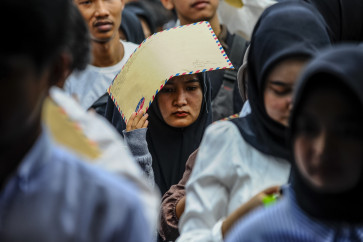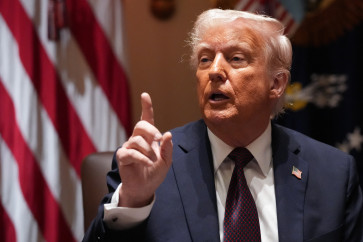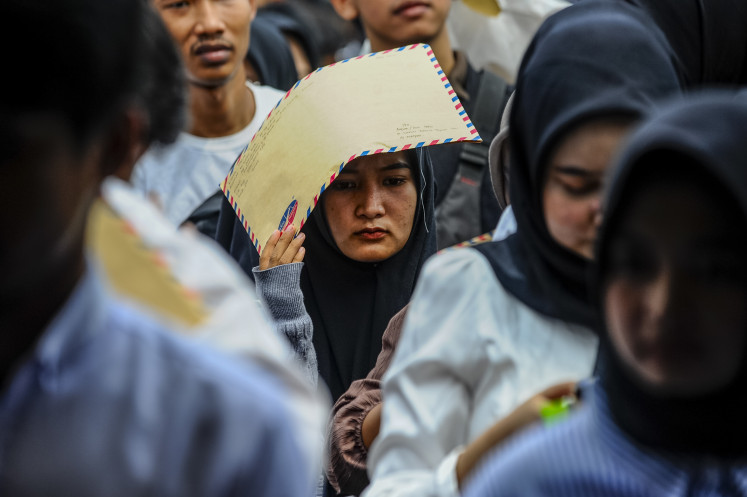UN calls for female quota at RI House
The UNâs top official on women affairs has called on Indonesia to provide a quota for women to sit at the House of Representatives
Change text size
Gift Premium Articles
to Anyone

T
he UN's top official on women affairs has called on Indonesia to provide a quota for women to sit at the House of Representatives.
UN Entity for Gender Equality and Empowerment (UN Women) deputy executive director Lakshmi Puri argued that it was the most feasible way for Indonesia to have better representation of women and to produce just bills that are free from all forms of discrimination.
A mandatory quota is also the answer to the classic question of whether women should get legislative seats through affirmative action or based on merit, as good qualities can be developed overtime, as long as access into the legislative body is guaranteed, she says.
Women are to account for 30 percent of the candidate lists of all parties for all legislative bodies, but only 97 women made it through in the 2014 elections, 17 percent of House seats. The figure was lower than the 103 women elected in 2009.
'UN Women has always strongly advocated for special measures and quotas. Now, this 30 percent quota, is it a target or is it mandatory? It's a target and that's why it's not being reached,' Puri, who is also the UN assistant secretary-general for intergovernmental support and strategic partnerships, said during her visit to Indonesia on Wednesday.
Puri was visiting Indonesia to attend the ASEAN-UN Partnership meeting. She was also scheduled to have a bilateral meeting with Foreign Minister Retno LP Marsudi to discuss gender issues.
'There can't just be targets. There needs to be a mandatory quota, and you need the critical mass, otherwise you keep operating in a male-dominated and patriarchal environment,' she said.
She cited how Rwanda's move to reserve seats for women ' among other examples ' resulted in 66 percent representation of women in its parliament. Another example was an Indian woman elected three times and beat out 15 men.
'['¦] Representation of women in the local government has happened only because of a quota. But then after that, women, they come into their own and then are able to get elected on their own right, without reservation,' she added.
Puri also emphasized the need to educate voters on the value of having women lawmakers and to oblige parties to meet quotas during an election period. Indonesia is ranked 110 out of 188 countries in the gender quality index, with assessment components of reproductive health, empowerment and economic involvement. Indonesia also has a high prevalence of child marriage, with one out of six children under the age of 18 marrying every year.
Roberta Clarke, regional director of the UN Women Regional Office for Asia and the Pacific, said that there was structural and cultural barriers that often made women reluctant to get involved in public affairs.
'The idea of merit is one that women politicians also bring up, as this idea that quotas undermine their sense of credibility ['¦] but I think even those women can admit that structural barriers and cultural barriers are very high and we need revisions,' Clarke said.
'With a quota we are getting pass the cultural barriers. So create a new norm, a new norm that women have equal opportunity to represent.'









